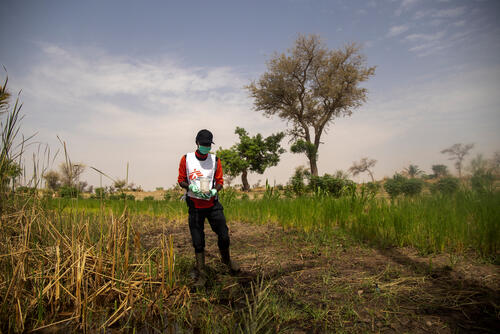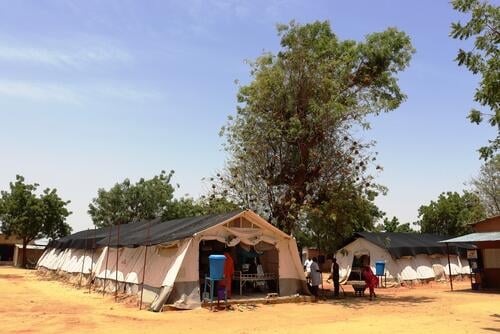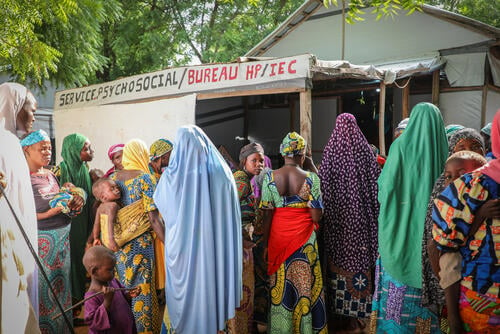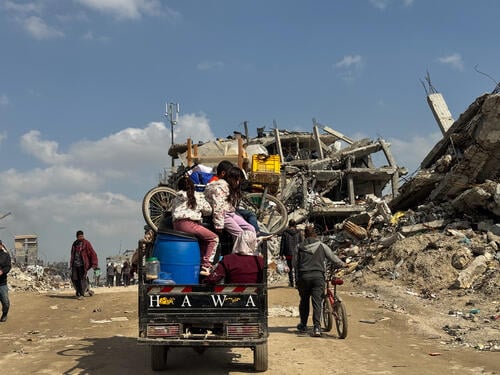In Haramia, as in 14 other villages in the commune of Bandé in southern Niger, villagers are living through a rainy season much different to previous years. In these villages, our teams have launched water treatment activities to prevent the development of mosquito larvae who spread malaria.
Houdou Oumaro, Haramia’s village chief, sits calmly in front of his house. “Unlike in the past, I sit outside more and without worry,” says Oumaro. “The mosquitos do not annoy us anymore. In fact, we’ve noticed a decrease in the malaria cases among the children in the villages – mine included,” he says.
Since June, our teams have been visiting Haramia and other villages in Bandé commune to treat the water points – including wells, water pumps and ponds.
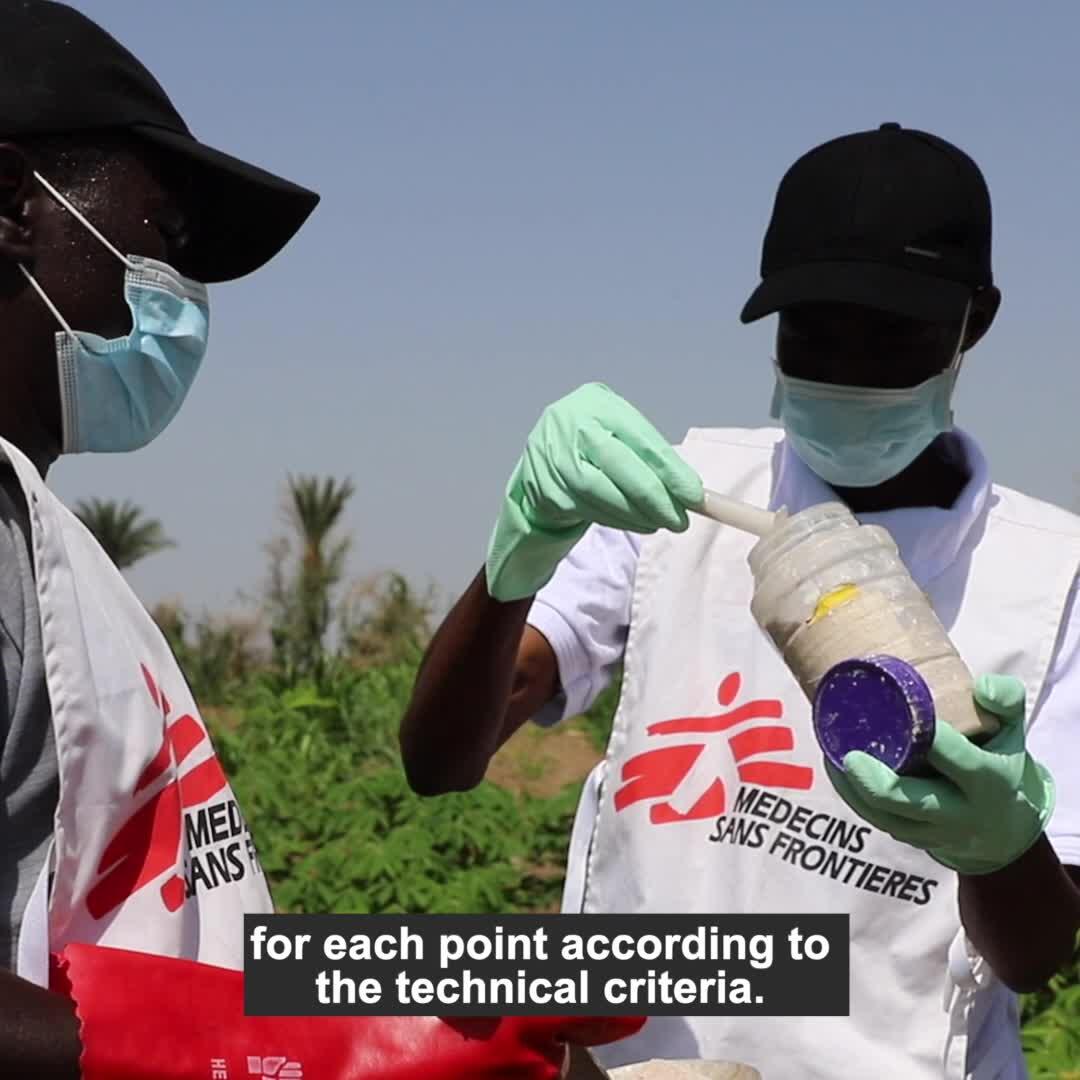
Malaria prevention through water treatment
“We live because of this water. All our families drink from these water pumps and use the well’s water in their households and for cooking. Even our livestock lives because of this water,” says Oumaro. This region of Niger is well-known for being one of the richest in terms of water resources, and is one of the regions with the highest rainfall in the country.
However, these large quantities of water, very close to people’s homes, are a breeding ground and habitat for different types of mosquito, including anopheles, who are responsible for the transmission of malaria throughout the year. When it rains the surface area of the water increases by three to four times, creating more opportunity for egg-laying and larvae development.
Dr Sanjiarizaha Randriamaherijaona is an entomologist with MSF and is responsible for implementing new vector control projects in several countries and arrived in Niger in May 2021 to work on one such project.
“We launched this activity before the rainy season by integrating all the necessary prevention activities, and taking into account the environmental context and the entomological situation in an area where the malaria rate is high, in order to reduce the incidence of malaria in these villages,” says Dr Randriamaherijaona. “This is done by reducing the lifespan of the mosquitoes that live in these waterholes and by preventing the development of new larvae,” he says.
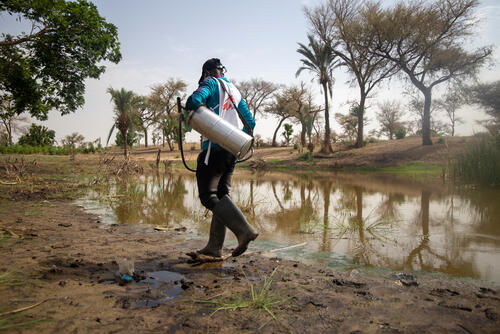
To achieve this, our teams visit the different water points in the villages to treat the water with insecticide. This is done with the support of the villagers: community engagement is always an essential aspect of vector control activities.
The insecticide does not work instantly, so the teams visit the villages every three to four weeks. It is very important to stick to this schedule to prevent the larvae from becoming resistant to the insecticide. A low dose of insecticide is used in accordance with World Health Organization recommendations, to avoid risk to human life, livestock and the environment.
“By respecting the recommended dose, the impact remains negligible on the ecological level. This is one of our working conditions, but also one of the concerns of the communities,” says Dr Randriamaherijaona.
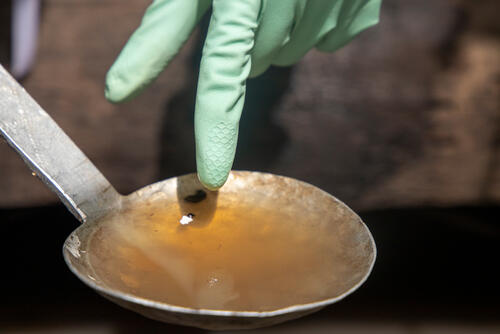
The villages were selected based on the available medical data on malaria from previous years – for example, the high admission rate of malaria cases in the paediatric unit of Magaria hospital, where we support the health authorities. It is too early to measure concrete positive change as the activities are still ongoing, and the impact will be observed at the end of the rainy season, which lasts until October.
The villagers, however, are starting to see a change already. Mariatou Habou is a community health worker in Haramia village, trained by our teams to educate people in her village about malaria and help detect cases as early as possible, before they worsen and require hospital care. Previously, she saw more than 10 children affected by malaria every day. But since the water treatment activities started, this number has drastically decreased. Her greatest wish is for malaria to be totally eradicated from the village.
At first, the residents of the villages were curious but somewhat suspicious of the new activities. They wanted a lasting solution to malaria, but did not know enough about the impact of insecticide on the water they use every day. Our health promotion team therefore visited the villages on several occasions to explain the nature of the activities and to answer people’s questions and concerns.
If the results turn out to be positive, the water treatment activity may be an effective and sustainable solution for the prevention of malaria in places with high incidents of the disease.Dr Sanjiarizaha Randriamaherijaona, MSF entomologist
“We are a family of nine. We work in the fields and we have cattle. I was worried that the product that is used would kill my crops and my cows,” says Saïdou Moussa, a villager from Haramia who lost three of his children to malaria. “We were informed beforehand that the water treatment product does not create any danger to our lives or our animals. I am reassured to see that no problem has been caused so far, two months after the start of activities.”
Our teams scaled up the activities during the rainy season and will continue in the months after. The response has already started to show effectiveness in all 15 villages. To the relief of the communities, malaria cases have started to decline.
We also launched an indoor insecticide spraying activity in August in nine other villages located in Maidamoussa commune, also in the department of Magaria. These prevention activities at community level support the efforts made by medical teams to respond to high rates of malaria in this region.
“If the results turn out to be positive, the water treatment activity may be an effective and sustainable solution for the prevention of malaria in places with high incidents of the disease, such as Magaria,” says Dr Randriamaherijaona.
MSF has worked in Niger since 1985 and regularly supports the public health system in the management of epidemics in the country, such as cholera, measles and meningitis. At the moment, our teams are also providing free quality medical care to people in the regions of Agadez, Diffa, Tillabéry, Zinder and Maradi.



